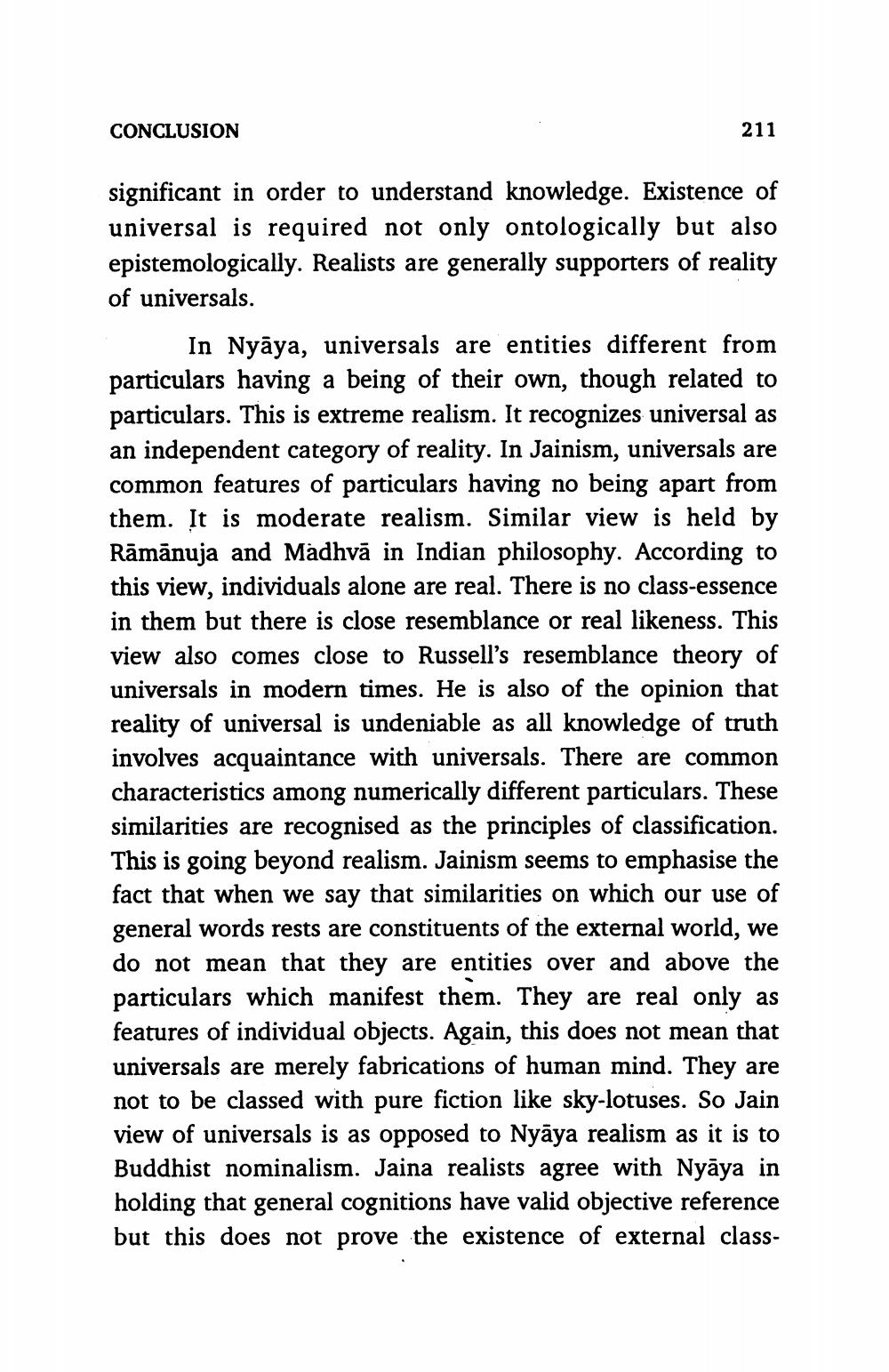________________
CONCLUSION
211
significant in order to understand knowledge. Existence of universal is required not only ontologically but also epistemologically. Realists are generally supporters of reality of universals.
In Nyāya, universals are entities different from particulars having a being of their own, though related to particulars. This is extreme realism. It recognizes universal as an independent category of reality. In Jainism, universals are common features of particulars having no being apart from them. It is moderate realism. Similar view is held by Rāmānuja and Madhvā in Indian philosophy. According to this view, individuals alone are real. There is no class-essence in them but there is close resemblance or real likeness. This view also comes close to Russell's resemblance theory of universals in modern times. He is also of the opinion that reality of universal is undeniable as all knowledge of truth involves acquaintance with universals. There are common characteristics among numerically different particulars. These similarities are recognised as the principles of classification. This is going beyond realism. Jainism seems to emphasise the fact that when we say that similarities on which our use of general words rests are constituents of the external world, we do not mean that they are entities over and above the particulars which manifest them. They are real only as features of individual objects. Again, this does not mean that universals are merely fabrications of human mind. They are not to be classed with pure fiction like sky-lotuses. So Jain view of universals is as opposed to Nyāya realism as it is to Buddhist nominalism. Jaina realists agree with Nyāya in holding that general cognitions have valid objective reference but this does not prove the existence of external class




